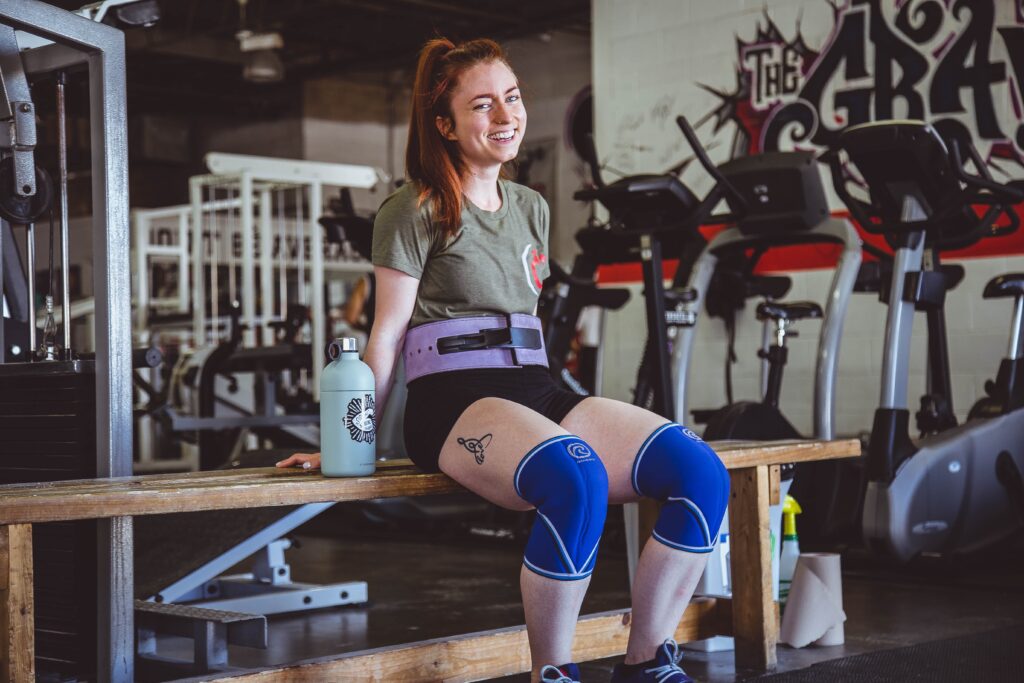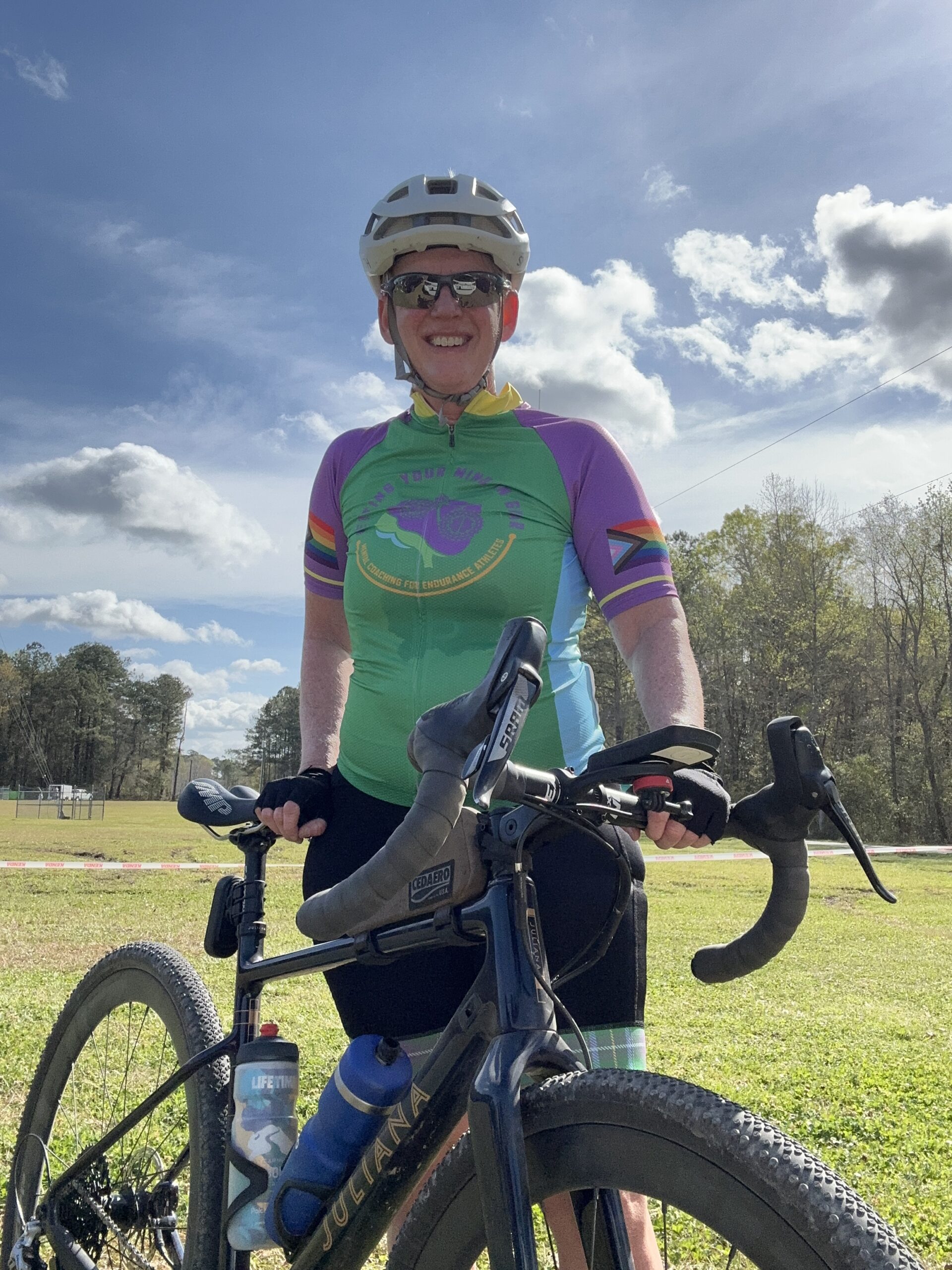Silencing Your Inner Critic: A Guide to Overcoming Negative Body Image

Weight…..The very word is heavy. It comes with so much baggage! You not only have the outside world to deal with but you are also working on silencing your inner critic.
The Athlete’s Dilemma: Striving for the ‘Ideal Body Weight’
Weight and body size have been such a part of our lives both in our regular everyday life and as athletes. As a triathlete I often heard “a lighter athlete is a faster athlete”. It has been part of the culture of swimming, biking and running. So much so that many endurance athletes have suffered with eating disorders in an effort to reach the misconceived “Ideal Body Weight”. In one study they found that 11% of male cyclists and a staggering 80% of female cyclists were at risk for disordered eating. Although sad, it is not surprising. A few years ago when I was competing in long course triathlons, after group workouts my coach would weigh us. This was so normal, and so accepted, none of us thought to question it. If the pressure was that great in a non-elite group, imagine the pressure elite level athletes experience.
The Lifelong Struggle: Body Image Messages for Women
As females, since childhood we have been inundated with messages about weight and appearance. I know that I am not alone in my experience of being told at age 12 that my thighs were too big. Too big for what??? Unfortunately the judgment does not end at the start of puberty. It continues through life. After pregnancy women are often asked when they are going to lose the “baby weight”.
In menopause we are given messages that we need to lose belly fat. We hear other women complain about their appearance, if the woman next to me at the gym doesn’t like the way her legs look what does that say about my similarly shaped legs? What does the daughter learn when she hears her mother complain about her shape or size? Or what does that daughter learn when she sees her mother go on diet after diet.
Every message we are given adds to the emotional weight of we are not thin enough, fit enough, pretty enough…Those messages take a toll. Over time those messages warp into the belief that we are not good enough.
Shifting Perspectives: Embracing a Healthier Approach
Thankfully there is a shift in society and in endurance sports. Research is showing a well fed athlete is a faster athlete. Registered dietitians and many nutritionists are leading the way, shouting from the rooftops that we need to eat. As an endurance sport culture we are starting to see the immense negative effects of toxic beliefs about race weight. These toxic beliefs have led to countless eating disorders in athletes.
Media’s Influence: Battling Beauty Industry Marketing
The culture is shifting, but our inner voice, that ever present company is not keeping up with the research. That inner voice is bolstered from the companies and corporations whose very existence relies on us hating how we look. (Did you know that in 2021 the beauty industry in the US spent over $373 million dollars in marketing!!!) How do we drown out the ads for Noom, Weight loss drugs and other money making schemes that tell us we need to change?
Taking Control: Steps to Quiet the Inner Critic
We are not going to get advertising to stop anytime soon. So let’s see what we can control. How do we get that inner voice to change? Unfortunately there is no one simple way to silence the inner critic. However there are steps we can take to reduce it, and put the power back in our hands, not hands of the mean spirited inner critic.
The RUNER Method: Recognize, Understand, Name, Explore, Respond
I often turn to RUNER when the inner critic is wreaking havoc. RUNER stands for Recognize, Understand, Name, Explore and Respond.
- Recognize the inner voice or inner critic. When it starts to chime in, identify it as the inner critic, it’s not actually you. Recognize that it is separate from you.
- Understand that its message is old. It is not from the present. If possible, try to understand where it comes from. Are these your real thoughts? Or are these messages from companies, is it old outdated knowledge?
- Name what feelings accompany this inner critic. Some common feelings when the inner critic appears are sadness, grief, fear, shame, guilt, anger. There can be other feelings as well, you fill in the blank of what you are feeling.
- Explore how to respond to feelings and the inner critic. Is this a time to tell it to “shut up”, or is it a time to show some compassion for a healthy body image. What would you want a friend or someone you care about to do?
- Respond in a way you select from exploring.
Putting It Into Practice: Silencing Your Inner Critic
I’m at the gym. I notice a little extra fat around my waist. I notice that voice that chimes in. “God you’re fat! How did you let yourself get like this! I told you bread was bad for you!”
Empowering a Positive Body Image Journey
In those few moments I recognize that all too familiar voice. She is not welcome or wanted, but she is there. These messages are given to us all over media, and I have been receiving them throughout my life. I understand that my body is changing. In that moment, I name the feelings.
Do I feel sad that I am getting older or that my body is changing? Sure, I feel grief that youth is in the rear view mirror, but I am excited that I want to live a long healthy life. What are my options?
I allow myself time to explore my options. There are moments when I want to get mad and tell that mean inner critic to STFU! During other times, I want to go and curse out all of the media and others that dictate a small body is a beautiful body. I cannot forget that I feel compassion for the teenager in me who so desperately wants to fit in, wants to look like everybody else. Then I chose my response.
More often than not I chose compassion. I thank my body for how it was and how it is. I allow grieving for the youth that has past, gratitude for the lessons I have learned and the experiences I have had and I allow for excitement for what is to come. This has allowed me to learn how I am silencing the inner critic.
ADVERTISEMENT









